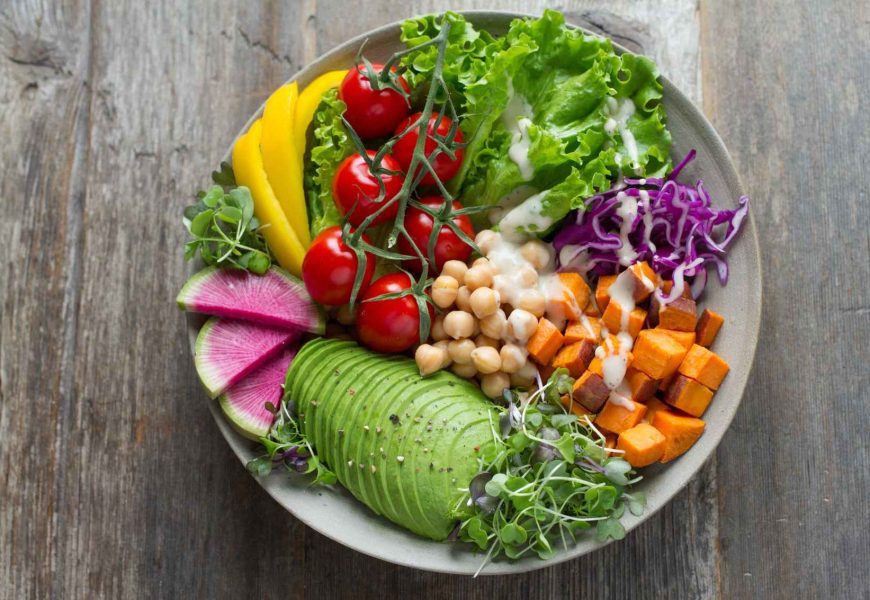Maintaining healthy blood sugar levels is essential for overall well-being, especially for people with diabetes, prediabetes, or insulin resistance. High blood sugar can lead to serious health complications like heart disease, nerve damage, and kidney problems.
Fortunately, your diet plays a major role in blood sugar management. Certain foods can naturally help lower blood sugar levels by improving insulin sensitivity and slowing down glucose absorption.
In this article, we’ll explore the best foods that help regulate blood sugar naturally and how they benefit your health.
1. Leafy Green Vegetables
Leafy greens like spinach, kale, collard greens, and Swiss chard are low in carbohydrates and packed with fiber, vitamins, and antioxidants. Their high fiber content slows down digestion, preventing spikes in blood sugar.
Additionally, magnesium and vitamin C in leafy greens help improve insulin sensitivity, making them an excellent choice for those managing diabetes.
✔️ How to eat: Add them to salads, soups, smoothies, or stir-fry dishes.
2. Whole Grains
Unlike refined grains (like white rice or white bread), whole grains such as quinoa, brown rice, whole wheat, oats, and barley have more fiber, which helps slow sugar absorption.
Whole grains also have a lower glycemic index (GI), meaning they don’t cause sharp blood sugar spikes. Studies show that people who consume whole grains regularly have a lower risk of type 2 diabetes.
✔️ How to eat: Replace white rice with quinoa or brown rice, and choose whole wheat over refined flour.
3. Nuts and Seeds
Nuts and seeds like almonds, walnuts, chia seeds, and flaxseeds are rich in healthy fats, fiber, and protein, making them excellent for blood sugar control.
Studies suggest that eating nuts regularly may reduce fasting blood sugar levels and improve insulin resistance. Chia and flaxseeds are particularly beneficial because they contain soluble fiber, which helps slow glucose absorption.
✔️ How to eat: Snack on a handful of nuts or add chia/flaxseeds to smoothies, yogurt, or oatmeal.
4. Beans and Lentils
Beans and lentils are loaded with fiber, plant-based protein, and slow-digesting carbohydrates that prevent sudden blood sugar spikes.
The high fiber content in legumes slows the absorption of sugar into the bloodstream, helping maintain stable glucose levels. Studies show that regularly consuming beans can improve insulin sensitivity and lower blood sugar levels over time.
✔️ How to eat: Add them to soups, stews, salads, or as a side dish.
5. Berries
Berries such as blueberries, strawberries, raspberries, and blackberries are packed with antioxidants, fiber, and vitamins that help regulate blood sugar levels.
Despite their natural sweetness, berries have a low glycemic index and contain compounds that reduce inflammation and improve insulin response. Research suggests that eating berries regularly can help lower blood sugar after meals.
✔️ How to eat: Enjoy them fresh, in smoothies, or as a topping for yogurt or oatmeal.
6. Fatty Fish
Fatty fish like salmon, mackerel, sardines, and tuna are rich in omega-3 fatty acids, which help reduce inflammation and improve heart health—especially important for people with diabetes.
Omega-3s also support insulin function and help regulate blood sugar levels. Studies suggest that people who consume fatty fish regularly have better glucose control and a lower risk of metabolic diseases.
✔️ How to eat: Grill, bake, or steam fish and pair it with vegetables for a healthy meal.
7. Avocados
Avocados are an excellent source of healthy monounsaturated fats, fiber, and essential nutrients that support blood sugar control.
They slow down digestion and help prevent blood sugar spikes after meals. Research shows that avocados may improve insulin sensitivity and reduce the risk of metabolic disorders.
✔️ How to eat: Add avocado to salads, sandwiches, or smoothies, or enjoy it as guacamole.
8. Greek Yogurt
Greek yogurt is high in protein and probiotics, which help regulate blood sugar levels. Studies show that probiotics enhance gut health and may improve insulin function, reducing the risk of type 2 diabetes.
Opt for unsweetened Greek yogurt to avoid added sugars that can spike blood glucose levels.
✔️ How to eat: Enjoy it as a snack, with berries, or as a base for smoothies.
9. Cinnamon
Cinnamon is a powerful spice known for its ability to lower blood sugar levels and improve insulin sensitivity. Research suggests that cinnamon can reduce fasting blood sugar and help regulate glucose metabolism.
However, it’s important to use Ceylon cinnamon instead of cassia cinnamon, as the latter contains higher levels of coumarin, which can be harmful in large amounts.
✔️ How to eat: Sprinkle cinnamon on oatmeal, yogurt, or in tea.
10. Apple Cider Vinegar
Apple cider vinegar has been shown to help lower blood sugar levels by improving insulin sensitivity and slowing down carbohydrate digestion.
Some studies suggest that consuming apple cider vinegar before meals can reduce post-meal blood sugar spikes. However, it should always be diluted with water before consumption.
✔️ How to eat: Mix 1-2 tablespoons with a glass of water and drink before meals.
11. Garlic and Onions
Garlic and onions contain compounds that help regulate blood sugar levels and reduce inflammation. Studies indicate that garlic may enhance insulin production, making it beneficial for people with diabetes.
✔️ How to eat: Add them to soups, stir-fries, or roasted dishes.
12. Eggs
Eggs are a great source of protein and healthy fats, which help maintain stable blood sugar levels. Studies suggest that eating eggs regularly may improve insulin sensitivity and reduce the risk of type 2 diabetes.
✔️ How to eat: Have them boiled, scrambled, or in an omelet.
Final Thoughts
Managing blood sugar levels is essential for overall health and diabetes prevention. Incorporating these blood sugar-friendly foods into your diet can help stabilize glucose levels, improve insulin function, and support long-term health.
For best results, pair these foods with a balanced diet, regular exercise, and healthy lifestyle habits. If you have diabetes or high blood sugar concerns, always consult a healthcare professional before making dietary changes.




